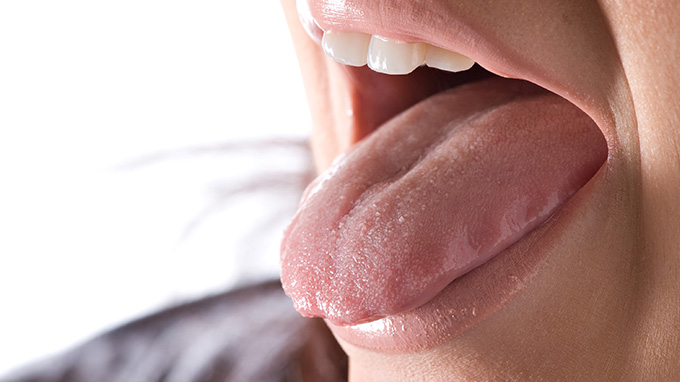The child vomits, teach you a few tricks
Vomiting is a common clinical symptom in children. Many diseases may cause vomiting. Do not rush to give your child antiemetic medicine unless the doctor instructs you to use it.
"My baby suddenly vomited last night, what do you vomit? What do you say? Did you eat a bad stomach? Now you vomit even if you drink water, I don’t have the spirit, I heard that I still have to rule out encephalitis? Is it so serious? Do I want to go to the hospital immediately?
Children''s sudden vomiting is very common clinically. Faced with this situation, what do parents do?
First, recognize vomiting
vomiting is a common clinical symptom in children. Vomiting is a reflex action in which the contents of the stomach go back into the esophagus and spit out through the mouth. Vomiting can vomit harmful substances swallowed into the stomach. It is a defensive reflex of the body and has a certain protective effect. However, children have poor tolerance and long-term and severe vomiting can cause complications such as dehydration and electrolyte disturbance. Therefore, Once the child vomits more frequently, he should go to the hospital immediately.
Second, what causes vomiting?
(1) Infection: Digestive system infection is the most common, such as the acuteness caused by the child eating an unclean diet Gastroenteritis; respiratory tract infections such as acute pharyngitis can also cause vomiting; and nervous system infections, urinary tract infections, etc. can also cause vomiting. Therefore, it is very important for the child to have vomiting caused by that kind of cause.
(2) Gastrointestinal obstruction: In addition to medical diseases, surgical diseases can also cause vomiting. Such as congenital gastrointestinal malformations, intestinal obstruction, intussusception, toxic intestinal paralysis, etc. Therefore, when the child vomits violently, abdominal X-rays and abdominal B-ultrasound are often required to be checked.
(3) Central nervous system lesions: intracranial space-occupying lesions, intracranial hemorrhage, epilepsy, etc. can also cause vomiting, so, suspecting that this is a convenient disease, the doctor will recommend to the child to do head CT, brain It is very necessary to check the electrogram and so on.
In addition, some rare diseases such as diabetes, hyponatremia, drug factors, motion sickness, etc. can also cause vomiting.
learned from the above-mentioned etiology that there are many causes of vomiting, so once the child vomits several times, don’t be careless and you should seek medical treatment in time.
3. Children vomiting, what should parents observe?
1. Is the child’s vomiting ejective?
In the hospital, parents must often ask the doctor if the child''s vomiting is jetting? Jetting vomiting should be considered as clinically more severe vomiting, and the contents of the stomach will suddenly eject from the mouth or nostrils. This situation often occurs when suffering from brain diseases, such as meningitis or brain tumors, and the intracranial pressure of children will increase, resulting in jet-like vomiting; in addition, this type of vomiting can also be seen in the digestive tract for various reasons Obstruction, such as congenital gastrointestinal malformations and pyloric spasms. In short, jet vomiting is a symptom that requires further investigation, and seek medical attention as soon as possible.
2. Observe the color and accompanying conditions of the spit out
When the child vomits, the parent should observe the color and accompanying situation of the child’s spitting stomach contents and record them so that they can go to the hospital Report the situation to the doctor in time. If the spit is a little stomach content, and the child spit out, the child is comfortable. At this time, it is estimated that the problem is not serious, and it is related to dyspepsia caused by "disease from the mouth". You can temporarily observe it; if the vomit is mixed with yellow-green liquid and has a bitter taste, it means that even the bile is spit out, which is often the case Seen in high intestinal obstruction or hepatobiliary diseases, it is necessary to go to the children''s surgery immediately; if vomiting is accompanied by diarrhea, it is often indicated that acute gastroenteritis is common; if jam-like stools are associated, intussusception should be considered; if accompanied by headache, drowsiness, Convulsions, etc. should consider intracranial diseases. In addition, when the child vomits, fever, diarrhea and abdominal pain should be observed and recorded. What is the specific reason? In many cases, our doctors also need some help to identify and diagnose.
3. After vomiting, choose the right time to feed
Many parents are always afraid that their children will be hungry. After vomiting, the children are anxious to feed again. This time is actually when the gastrointestinal tract needs the most rest. The child''s body is wise. When the child has no obvious hunger and no obvious dehydration, parents should not force the child to eat. If your child has dehydration, you can give children a small amount of hypotonic oral rehydration salt frequently. It is not easy to take hunger therapy. Because children cannot tolerate hunger, they may also increase dehydration. Therefore, if a child who has vomiting has ruled out a surgical disease, under the guidance of a doctor, the child can continue to feed after the child''s vomiting has been reduced or disappeared. For example, breast-feeding children, continue to feed; milk-feeding children, dilute milk powder transition. For older children, stop eating milk and meat and eggs that are not suitable for digestion. Light, such as porridge or noodle soup, vomiting is still heavy, you should choose anti-emetic medicine under the guidance of a doctor before eating; sometimes, you can give With intravenous infusion, eat gastrointestinal cramps after remission.
4. When vomiting, which medicines do we usually use?
Stomach promoting drugs such as domperidone are our commonly used oral antiemetics. Motilium is also called domperidone, and we are commonly used clinically for acute and persistent vomiting caused by various reasons, such as infection, postprandial reflux and vomiting.
This medicine must be taken before meal 15 Take in minutes. Because these drugs may cause side effects on the nervous system of small babies, babies under 1 year old should be used under the supervision of a doctor. If the child has gastrointestinal bleeding, intestinal obstruction or perforation, this medicine is prohibited.
5. Children use metoclopramide with caution.
This medicine is an old antiemetic medicine because of its many side effects, such as muscle tremor, head tilted back, torticollis, ataxia, etc. At present, we no longer give it to children use. However, some private clinics are still in use. Parents are advised to avoid using this medicine.
6. Do not abuse antibiotics:
For vomiting caused by a clear bacterial infection, antibiotics must be used. Co-trimoxazole, norfloxacin (norfloxacin), and gentamicin have good effects on intestinal bacteria, but for children, because of the relatively many side effects, these drugs are basically not used clinically, and we usually use clinically Rifaximin, fosfomycin calcium or cephalosporins are more common.
When do I go to the hospital?
If the parents initially judge the child to have low vomiting symptoms, the child will feel well after vomiting, without dehydration symptoms, can eat and play , You can temporarily avoid going to the hospital. In the following cases, go to the hospital immediately.
1. Repeated vomiting, oliguria, inability to eat, and poor spirits.
2. When vomiting is accompanied by diarrhea, abdominal pain, paroxysmal crying, headache or fever.
3. Children younger than one year old.
4. When the vomiting is spray-like, or there is yellow-green or red liquid in the vomit.
As the saying goes: eat wounds on one day and drink soup on the tenth. It takes time to recover from vomiting, and it takes time to eat and drink and care. In many cases, vomiting is not terrible. The key is to clarify the cause, treat the original disease and prevent dehydration. Reasonable feeding is the key to restoring health.
Related Articles

- Child constipation, teach you a few tricks
- "The child only pulls once every three or four days, and all of them are''sheep eggs'', and changing a lot of milk powder has no effect. Doctor, do you think there is s
- 2020-08-01

- What is the relationship between infant vomiting and protein allergy (tolerance)
- Speaking of the repeated vomiting of small babies, many people immediately think of the word "disease from the mouth", and people often associate vomiting with digestive system dise
- 2020-08-01
